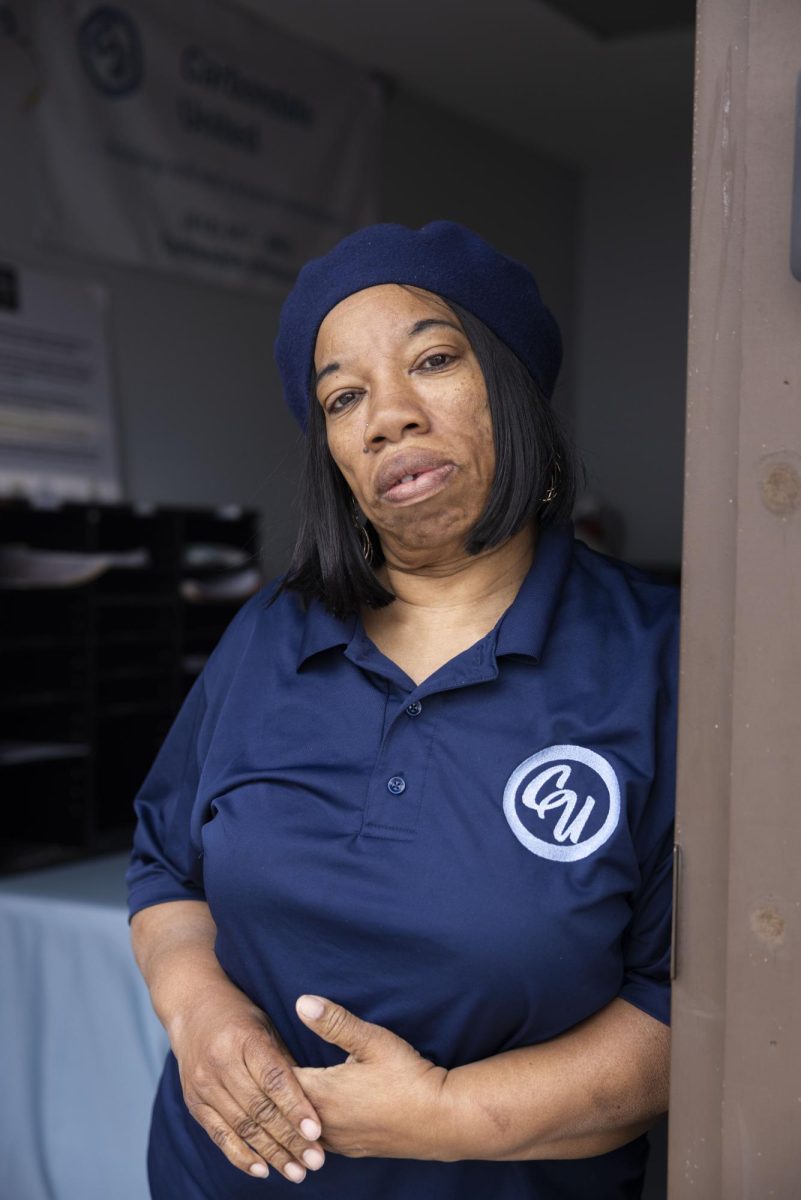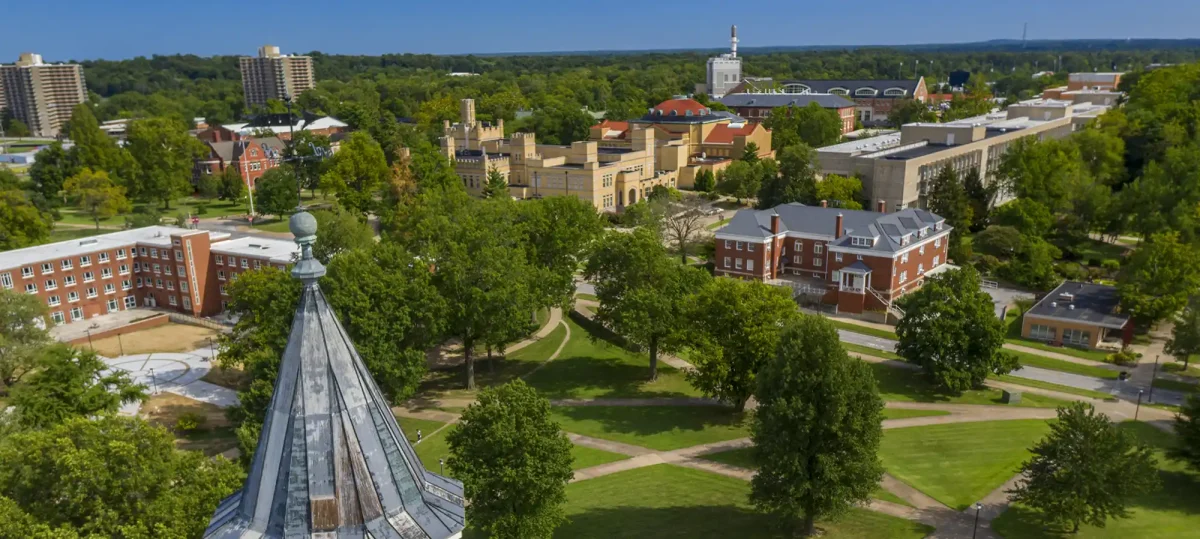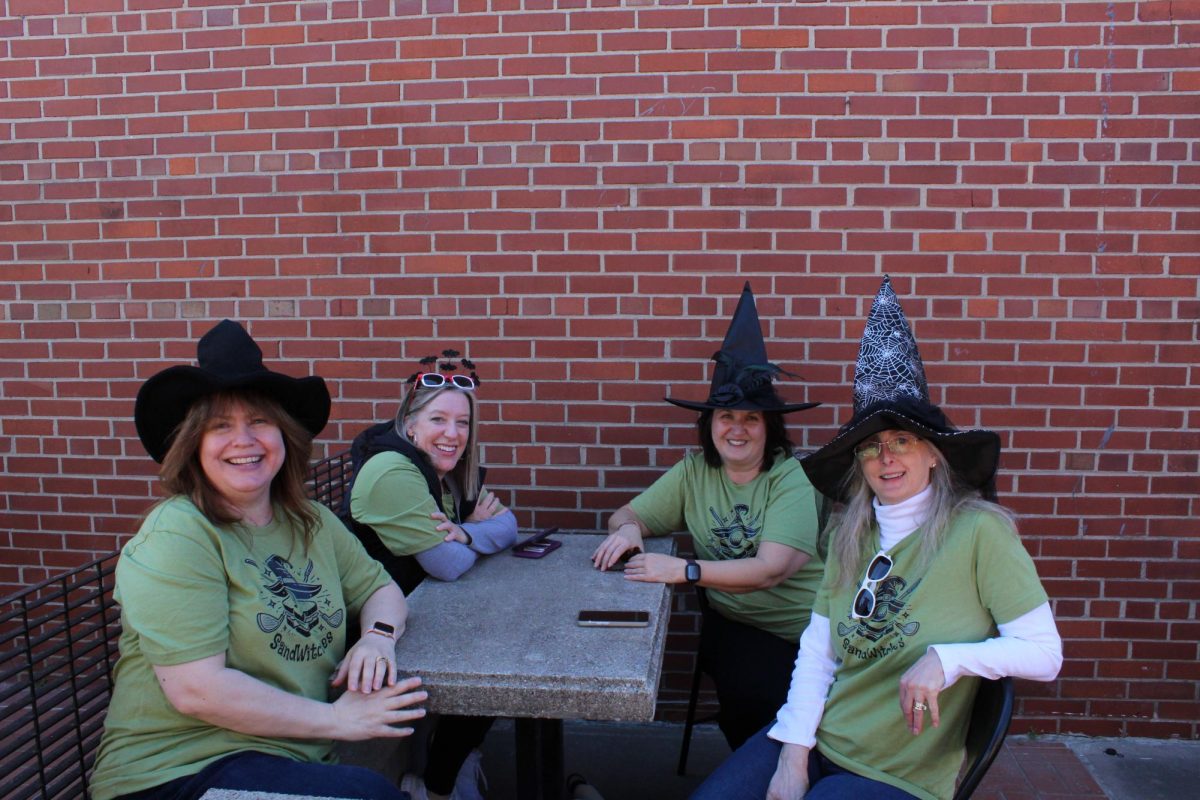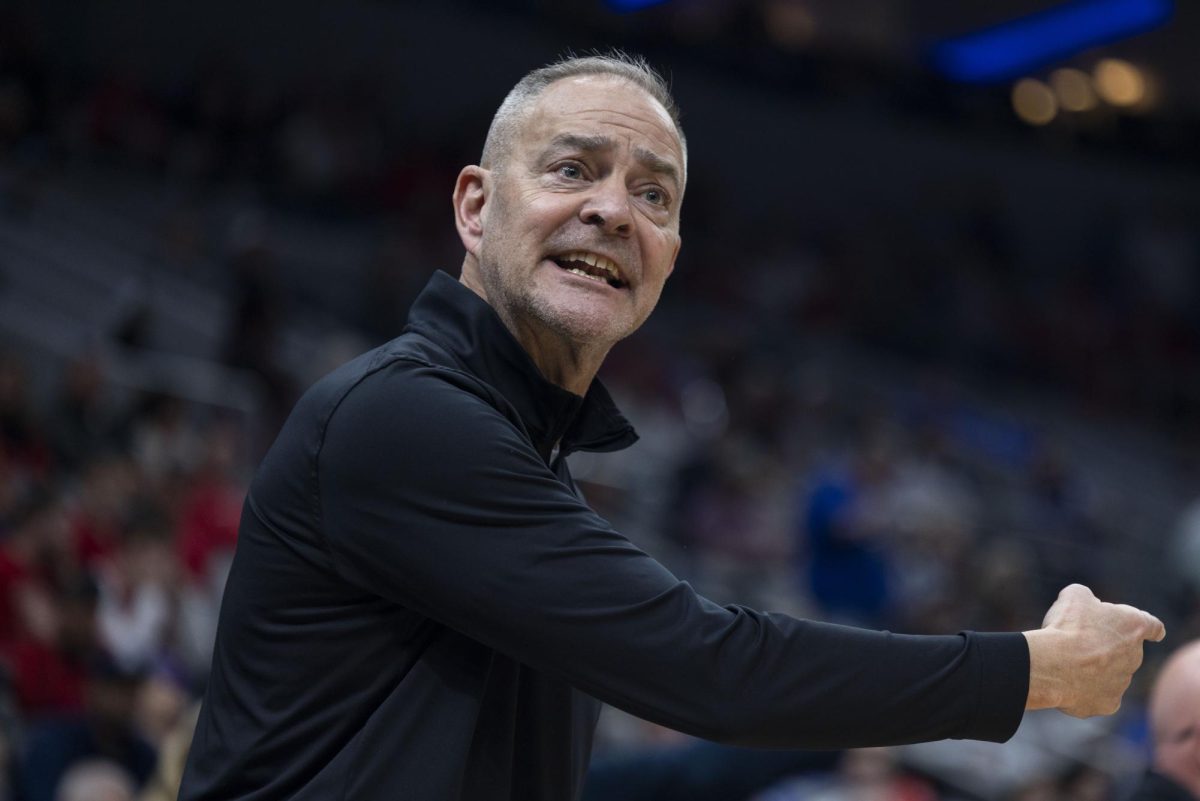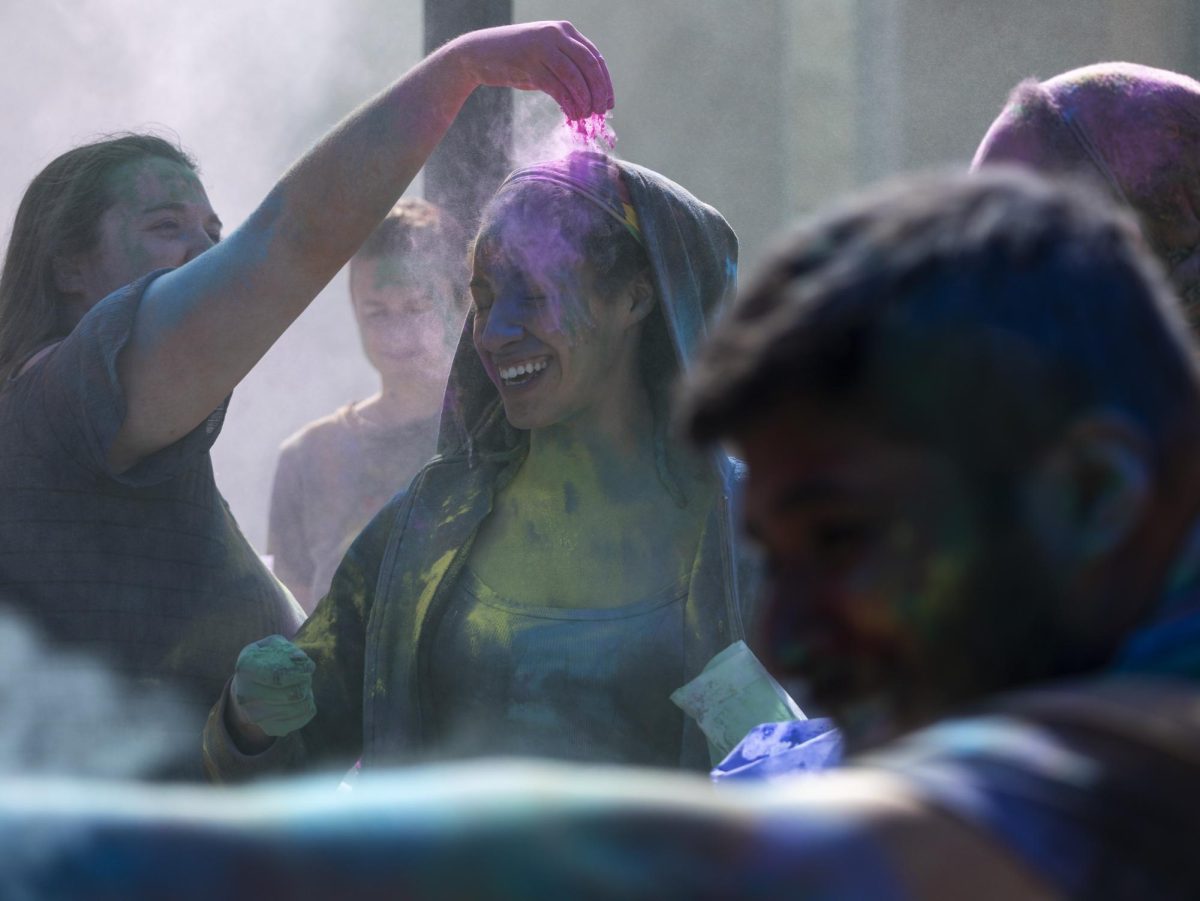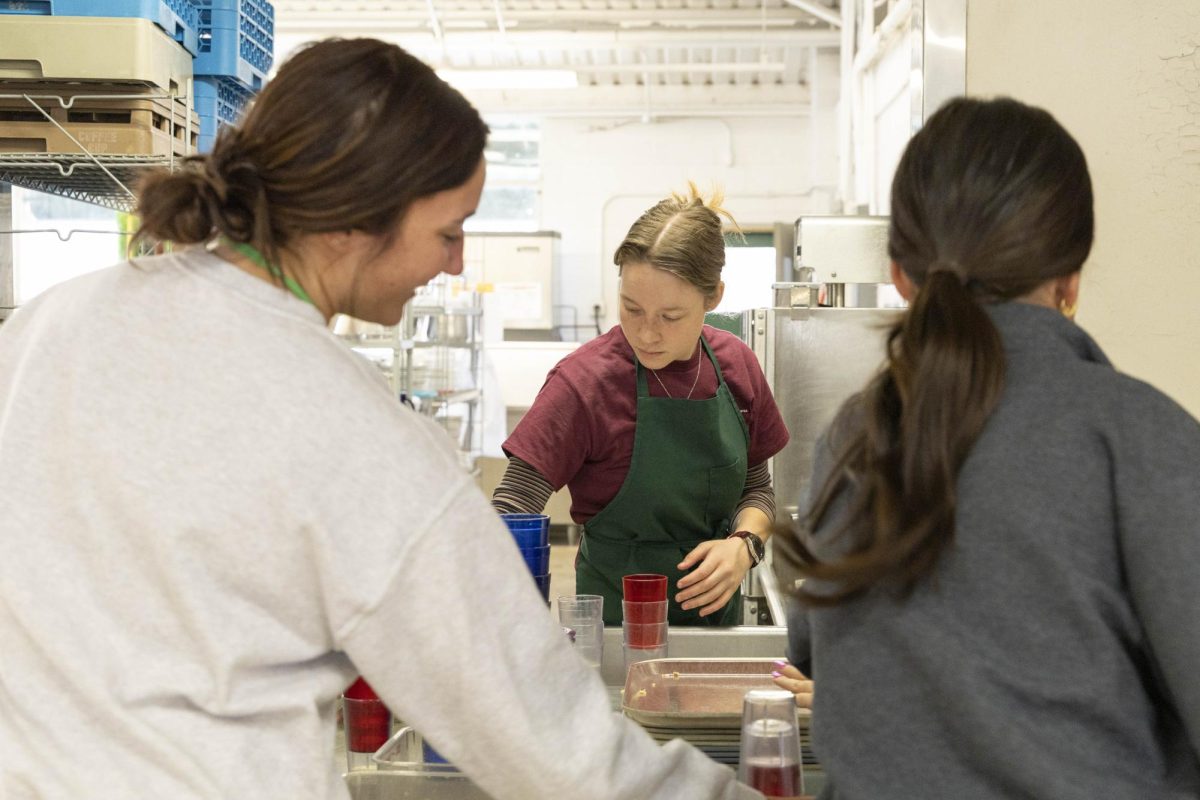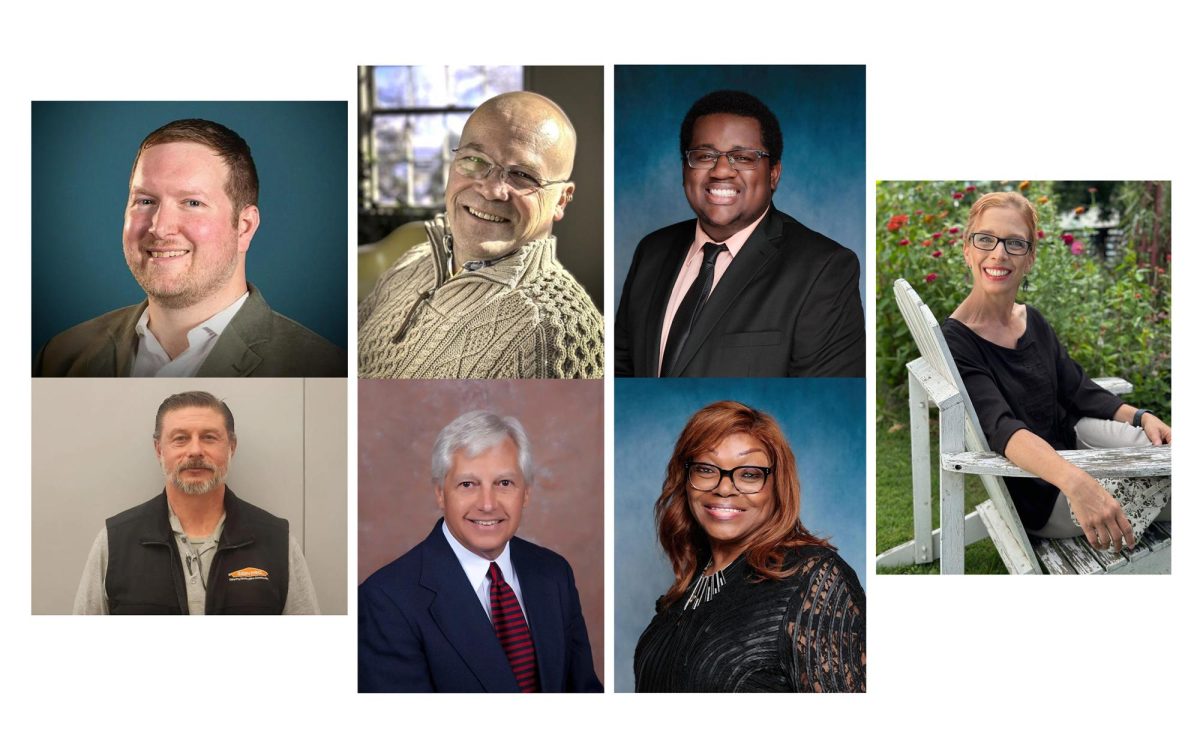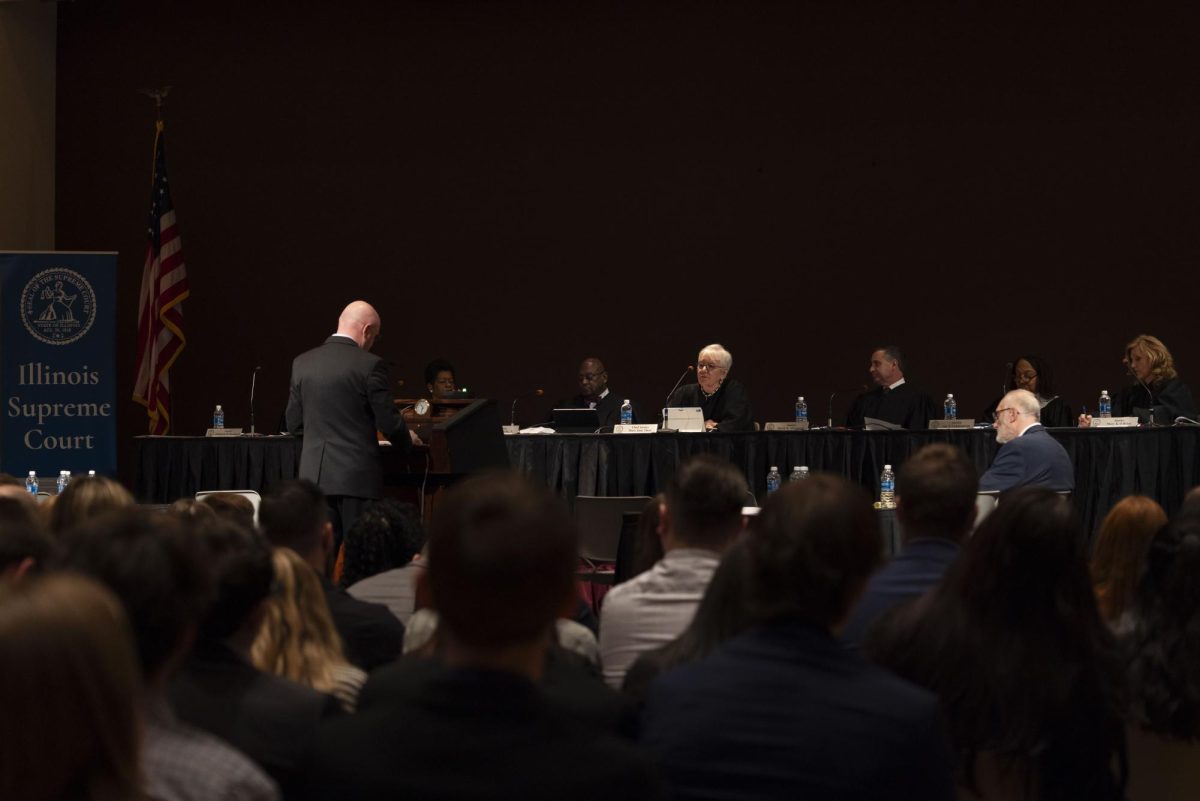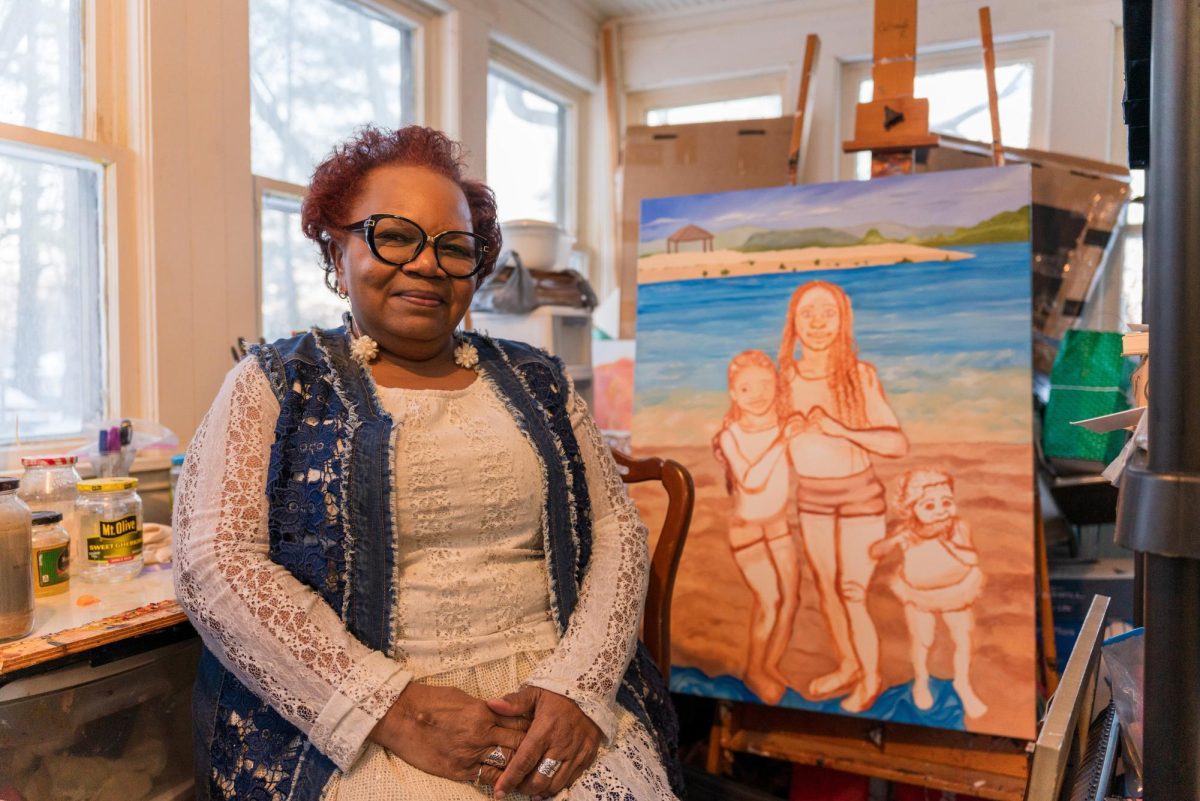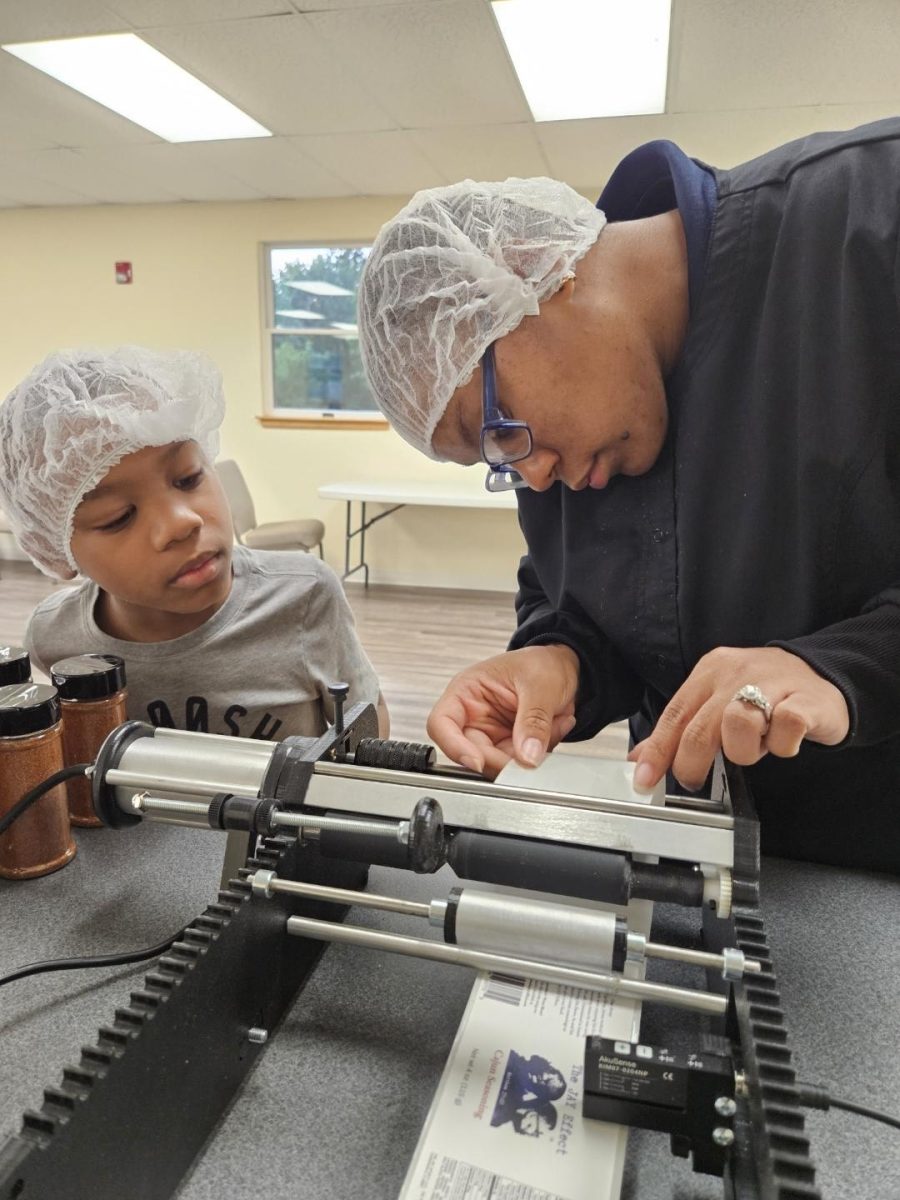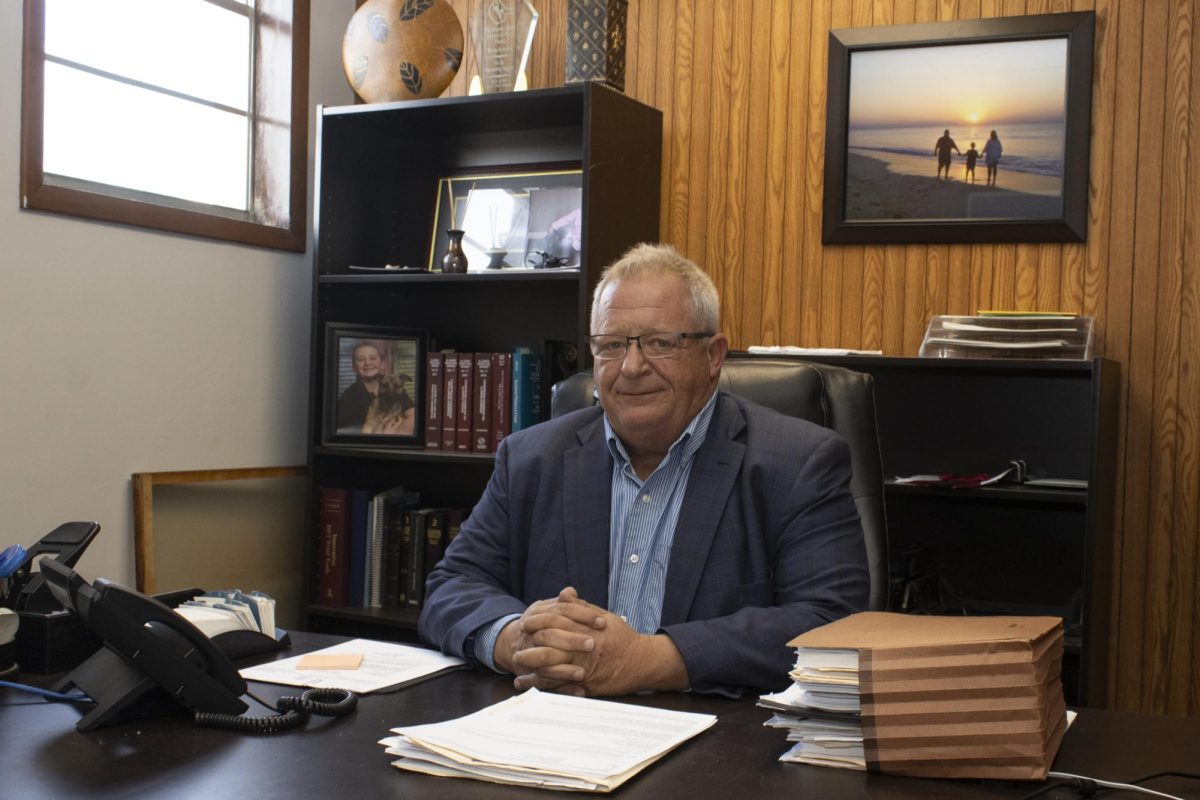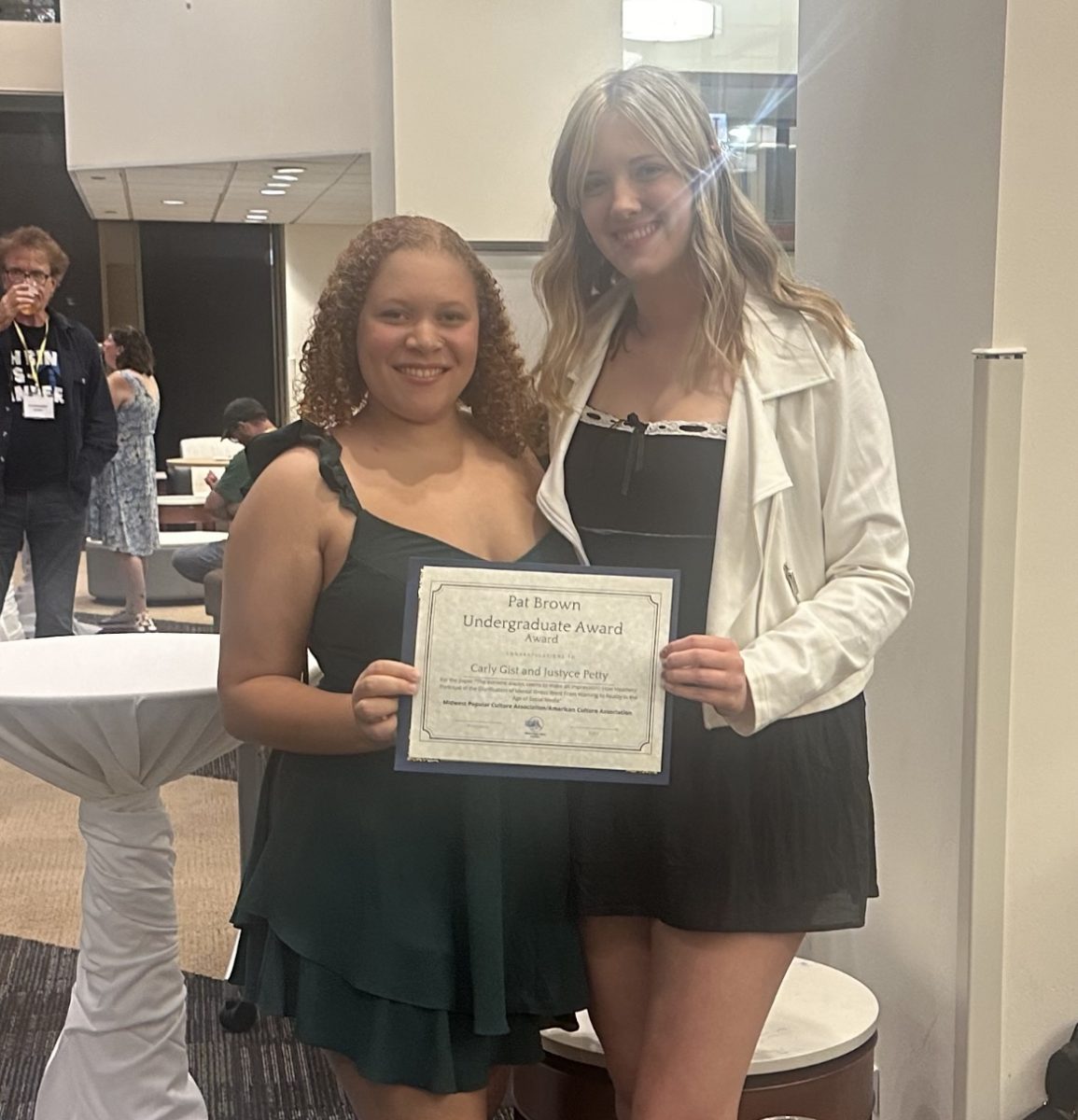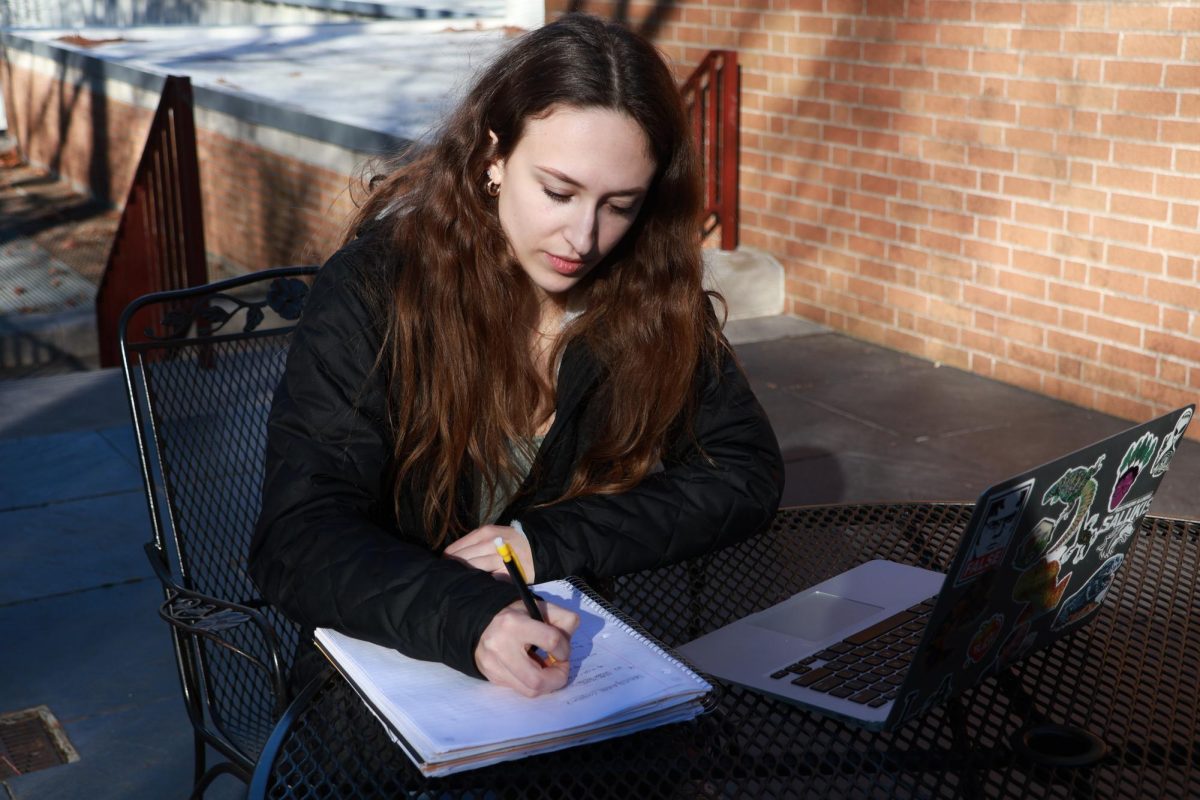Nancy Maxwell has spent over 20 years advocating for the southern Illinois community, and her latest project — a documentary in the works — continues that mission.
As the executive director of Carbondale United and vice president of the Black Chamber of Commerce, Maxwell has been on the front lines of addressing systemic issues that Black people face in Carbondale. She said her upcoming film will bridge generational gaps, amplify marginalized voices and inspire action in other communities facing ongoing challenges.
Advertisement
“When the presidential election was final, a lot of people went into, like, a deep depression. They got really upset, and it was really devastating to them,” Maxwell said.
She noticed a disconnect between younger and older generations in how they processed political and social turmoil.
“The older generations were like, ‘we’ve been through slavery. We’ve been through the ’50s and ’60s. We’ve been through some stuff. This is nothing, we can survive this again,’” she said. “And I felt the disconnect between the younger generation and the older generation because the younger generation hasn’t really experienced some of the things that happened like the older generation has.”
Advertisement*
Maxwell said she wants her documentary to center on interviews with people from all backgrounds and age groups, focusing on how different generations have experienced activism, discrimination and social change.
“It’s just gonna be diverse interviews, spanning across race, age and generations, weaving together stories of past insights into the present and hopes for our future through intimate conversation, historical perspectives and candid analysis,” she said.
This generational divide is part of what motivated her to collect different perspectives for the documentary. Maxwell wants the film to encourage difficult but necessary conversations.
“So basically, I wanted to interview some young people and some older people and let them tell a story about what they think about what’s happening now,” she said.
Maxwell also spoke about plans for a nationwide economic protest.
A social media campaign, organized originally by The People’s Union USA, a “grassroots movement dedicated to economic resistance, government accountability and corporate reform” according to their website, is rallying for a one-day spending blackout on Feb. 28, urging consumers to avoid purchases both online and in physical stores.
The initiative is in response to recent changes in diversity, equity and inclusion policies, particularly by major retailers such as Target and Amazon, as well as actions taken by the President Donald Trump administration.
John Schwarz, founder of The People’s Union USA, said in a video posted to Instagram, “They have told us we have no choice, that this is just how things are, that we have to accept these insane prices, the corporate greed, the billionaire tax breaks, all while we struggle just to get by. They’ve made us actually believe we need them, that without them, we’re hopeless and that we would collapse.”
The blackout encourages people to avoid shopping at major retailers, purchasing gas, or spending money at fast food chains in an effort to demonstrate collective economic action.
“This is how we change the game, not by waiting for politicians, not by thinking they’ll do the right thing, but by finally taking action ourselves,” Schwartz said.
Carbondale United, a community organization focused on fostering safety and activism, will be participating in a local demonstration of the blackout.
Maxwell said, “They’re planning a nationwide blackout, people won’t buy or sell anything. So I’ll be talking to some people…about trying to plan an event that will happen here on that day, for people to attend.”
The goal of the blackout is to highlight the importance of DEI efforts and encourage greater public support for these initiatives.
“I’m envisioning a place in the area that we can have the boycott, to have some kind of discussions, to have some food, you know, and to actually participate in the boycott and not buy anything that day from anywhere. We want this boycott to stand out,” Maxwell added.
She linked this effort to previous economic protests in Carbondale.
Maxwell said, “That’s kind of like the beginnings of the Black Chamber when they did a boycott after George Floyd. The rapper T.I. called for a boycott.”
George Floyd was a Black man who was killed in May 2020 by a Minneapolis police officer who kneeled on his neck for over nine minutes during an arrest, sparking widespread protests and calls for racial justice and police reform across the U.S..
“We actually did the boycott here, at the church, and we had the Black businesses come out and set up tables so you can only buy from Black businesses during this boycott. And that’s kind of how we got started with highlighting the Black businesses with that boycott right there, they called it Black Tuesday,” Maxwell said.
The documentary will highlight similar efforts and ongoing discussions that will be happening the day of the boycott.
“We can have food and have a conversation. It’s something we’re looking at. And then I would like to get stuff like that filmed about how we are making it through…the first 30 days,” she said.
Maxwell said she is committed to capturing as many voices as possible, even if not all interviews make it into the final cut.
“I want to forge a renewed path going forward,” Maxwell said. “Let’s go challenge viewers to reignite the fire of peaceful resistance, sustained action and unwary commitment to justice. This is not just a story of struggle. It’s a call to action and a reminder that the fight for equality is far from over.”
Her personal experiences in politics and activism have shaped her perspective on the issues the documentary will address.
“I’m not super old, I am older, and I kind of feel like this is already going on, maybe not so intensified, but just by being in a political lane I see so many things that I cannot do anything about. I see so many things that I feel like what happened even back in slavery days, it still lingers here, and it’s just put in a more modern version. And so, of course, that upsets me,” she said.
Maxwell reflected on continued racial disparities.
“Even sitting on City Council, we still see differences between black and white. And I feel like in this day in time, we should have been moved further than where we are,” she said. “With the death of George Floyd, we’ve seen a lot of things change, but now those changes are rolling back, the changes that happened in the ‘80s, ‘70s, ‘60s.”
She also noted the misconception that the election of Barack Obama marked the end of racial struggles.
“I think about when Obama became president, people said, ‘Oh, everything’s good. Black people are gonna be okay.’ That’s just not how it goes. We are still fighting the same fight, but in a different way,” Maxwell said.
Maxwell said she believes some people have grown complacent in the fight for justice.
“Feel like they’ve kind of forgotten and it’s not really that important to them. I mean, like we can sit on a bus now, we can drink out of a water fountain. I think we’ve kind of just went past that and kind of settled here,” she said.
Beyond racial issues, Maxwell wants the documentary to explore broader social struggles.
“It makes you wonder, when will this struggle be over? Not just with Black people or Brown people, but with LGBTQ, when will this stop? What can we do to stop? What can we do right now?” she asked.
Community gatherings have been playing a role in addressing these concerns.
“We had a People’s Assembly Saturday, and it was so good. We did a peace circle. People got up and talked, and you could tell that it made people feel better. People came up afterwards and said, ‘I feel so much better because it’s hard to look at the news because there’s fires going up every day,’” Maxwell said.
She stressed the need for continued proactive efforts such as these assemblies.
“We can’t just sit and say, ‘okay, let’s cross our fingers.’ We need to be doing some planning. Now is not the time to be disconnected. This is the time, more than ever, for everybody to be connected, because the things that they’re trying to do will affect each and every one of us,” Maxwell said.
Her goal is to have the project completed by the end of the month.
Maxwell said, “I got the questions, I got the whole package put together. I just need people to come help me execute this package, and so that’s what I’m working on,” she said.
She will also be planning a community screening after the project is complete.
“The plan is to rent a theater and actually play it in the theater, where everybody can just come in free and watch the video…and it’ll be some people that you actually know. Like it might be a neighbor you hear them tell the story that you never even heard from them before, but it kind of maybe will make you more woke, for lack of better terminology,” she said.
Getting to hear community members’ experiences first hand is a crucial aspect of the project.
“People will get a good history lesson, because you’ve got to know where you’ve been, to know where you’re going. So it won’t be like reading this in a book. You’ll be actually watching somebody tell a story,” she said.
She said she hopes the film will encourage civic engagement by emphasizing the power of collective action and community.
“We can’t just sit and be quiet anymore,” she said.
Updates and volunteer opportunities for the project will be shared on Carbondale United’s Facebook page.
Staff reporter Annalise Schmidt can be reached at aschmidt@dailyegyptian.com. To stay up to date on all your southern Illinois news, be sure to follow The Daily Egyptian on Facebook and on X @dailyegyptian.
Advertisement



